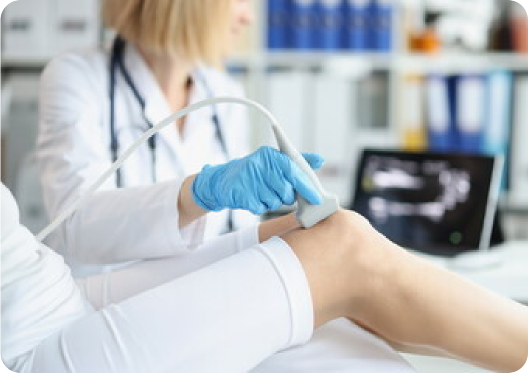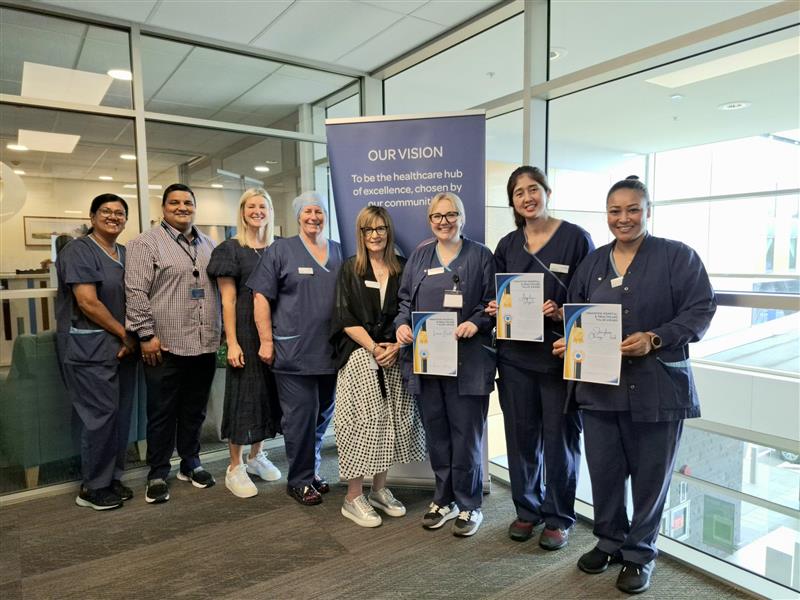This procedure takes 5 to 10 minutes and is similar to getting a pap (cervical) smear. Colposcopy is used to diagnose vaginal, cervical, and vulvar cancers.
Colposcopy is recommended in cases when:
- Anything abnormal is found during a pap (cervical smear) or a pelvic test
- You experience vaginal bleeding, polyps (non-cancerous growths), cervicitis (an inflamed cervix)
- Anything abnormal is found during a pap (cervical smear) or a pelvic test
- Genital warts could indicate an HPV infection, which can increase your risk of developing cervical cancer
- You have a burning sensation, itching, or abnormal skin on the vulva (signs of cell changes that may eventually lead to cancer)
The goal of a colposcopy is to identify abnormal or suspicious cells in your cervix and vaginal walls at an early stage.
At Ormiston Hospital, we provide a private and comfortable environment for patients coming in for the procedure. Colposcopy is a common procedure that our specialists are experienced in performing. To get a referral, the results of your cervical smear test are sent to the National Cervical Screening Programme and your doctor. Your nearest clinic will send you a letter to schedule an appointment for a colposcopy.
If you wish to arrange for the procedure to be done privately, you can contact one of our specialist gynaecologists. During your consultation, our specialists work with you to provide expert advice to support you in making informed decisions about your care.
Need to know
During your private consultation with one of our gynaecologists, they may ask a few questions about your current health condition and medical history. They will explain the benefits and the risks associated with the procedure. They will also give you a detailed insight into how the procedure is performed. If you wish to go ahead with the procedure, you can then work with the admissions team to arrange a date for the procedure.
Colposcopy is usually done in the doctor’s office and the whole procedure may take 5 to 10 minutes. An instrument called a colposcope (a specially lit microscopt) is used to examine your cervix and vaginal walls. As with a pap smear, an instrument called a speculum is inserted into the vagina, and then the colposcope is positioned outside the vagina with its light directed on the cervix. If the doctor finds anything abnormal, a small sample of tissue will be collected. This is called a cervical biopsy. A cervical biopsy is performed to get a clearer idea of the extent of the abnormal cells.
Colposcopy helps diagnose cervical, vulvar, and vaginal cancers. It also helps determine the need for further diagnosis or treatment. Colposcopy helps detect abnormal or pre-cancerous cells at an early stage and enable doctors to monitor changes over time.
You can go back to your work and your daily routine right away after the procedure; however, you should refrain from strenuous activity and heavy lifting for a few days. In case of a biopsy, it might take a few days to recover, probably less than a week. You must refrain from sexual intercourse for at least 48 hours after the biopsy.
Colposcopy is a routine procedure with minimal associated risks. However, you might experience some cramping or soreness during the procedure or for a day or two following the procedure. There might be a little spotting or a light bleeding from your vagina that may last for a few days. You may also experience dark discharge from your vagina for a few days after the biopsy.
It is important to follow your gynaecologist’s instructions carefully. These may include avoiding applying creams, powders, or foams to your vagina for at least 24 to 48 hours before the procedure. You will also be asked to refrain from vaginal sex for 48 hours before colposcopy and to avoid scheduling your colposcopy appointment during your menstrual period.
During the procedure, you may experience a slight burning sensation or tingling in your vagina. You may also experience a sharp pain like period cramp during the biopsy. Your doctor will ensure that you are comfortable and relaxed throughout the procedure.
After the procedure, your doctor may ask you to visit for follow-up appointments depending on the results of colposcopy. Instructions will be given on when you can resume normal activities.
Specialist Surgeons









